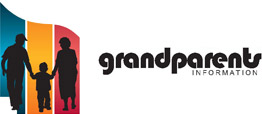Sewing to save our medical heroes
More than 900 Nurses and Doctors at The Wesley Hospital have participated in COVID-19 theatre simulations while preserving precious Personal Protective Equipment (PPE) reserves, thanks to the sewing skills of a medical student.
At 32 weeks pregnant, in the height of COVID-19 restrictions, final year medical student Louise Weidenfeld found herself with extra time on her hands.
“My colleagues were still going on placement but on the advice of our governing body I stood down from patient contact duties. In the beginning everyone was doing everything they could to help, and I wanted to do something to contribute.”
Louise’s mentor and Anaesthetist at The Wesley Hospital Dr Phillip Melksham said PPE was a major concern, at a time when simulation training was imperative.
“We started training our theatre teams immediately and have now trained more than 90 anaesthetists, with 74 of those in the first two weeks. Our simulations covered how to manage airways for COVID positive patients, provide advanced life support for a COVID positive patient, and donning and doffing (putting on and taking off) PPE,” said Dr Melksham.
“We train the whole team together – anaesthetists, anaesthetic nurses, recovery nurses and theatre assistants. Training everyone together is much more effective than training individually in different scenarios, but it does mean a lot of PPE is required.”
Dr Melksham said he asked Louise if she could help.
“We needed an alternative option for surgical masks, N95 masks and balaclavas, which is the protective equipment we wear over our heads. The N95 masks can be quite difficult to fit effectively so you need practice.”
For the first time since high school home economics, Louise grabbed out the sewing machine.
“There was a bit of trial and error. The surgical masks patterns online didn’t have a good universal fit. I ended up using pipe cleaners in the end to get the right fit around the nose.”
Over a matter of days Louise sewed 40 balaclavas, 20 surgical masks and 35 N-95 masks, which are laundered between training sessions.
Director of Medical Services at The Wesley A/Prof James Houston said it was invaluable to have the alternative options with the worldwide shortage of PPE during the pandemic.
“Having the sewn masks and balaclavas on hand allowed the hospital to preserve scarce and essential PPE supplies for treating patients, rather than consuming for training.”
Louise said after completing her Women’s Health rotation at The Wesley Hospital last year, it was nice to be able to contribute ahead of the birth of her baby.
“I’m very grateful for the position we are in in Australia. I’m extremely proud of the way the Australian population has taken the challenge and medical professionals have prepared themselves, and we’ve been lucky with the time and resources to be able to do that.”














